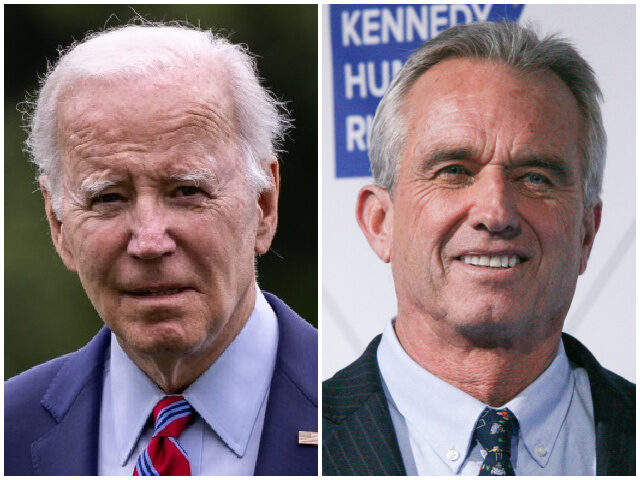The conventional wisdom is that President Joe Biden will be the Democratic Party’s presidential nominee by acclamation.
But just in case, Biden has shifted the South Carolina primary — his first and decisive primary victory in 2020, though it was only the fourth state to vote — to the beginning of the primary cycle. The idea is that he will win there easily, and affirm that he is, the party’s sole viable candidate A firewall strategy.
In so doing, Biden and the Democratic National Committee have snubbed Iowa and New Hampshire, who traditionally kick off the primary process. But the Iowa caucuses were a disaster in 2020 for Democrats, who could not count the votes on Election Night. And New Hampshire has long been hospitable to independent-minded candidates and long-shot outsiders — which is not a chance that Biden’s campaign team wants to take.
There had also been an argument brewing in Democratic Party quarters that Iowa and New Hampshire, with their predominantly white populations, should not play such an outsized role in choosing the party’s nominee. Putting South Carolina first would allow black voters, who form the overwhelming majority of the Democratic Party primary electorate there, a bigger say, and would better reflect the party’s emphasis on diversity.
But the biggest reason for the switch is that Biden has always had trouble winning in the early primary states. In 2020, he lost — badly — to Sen. Bernie Sanders (I-VT), who won Iowa, New Hampshire, and Nevada, becoming the first candidate of either party ever to win all three of the first nominating contests. A terrified Democratic Party establishment rallied behind Biden as soon as he had one legitimate win in the South Carolina race.
South Carolina is also easier for party leaders to control — usually. Biden was helped by Rep. James Clyburn (D-SC), whose endorsement in the week leading up to the 2020 primary helped put him over the top. Biden also traded heavily on his association with Barack Obama, and made use of the party machinery to turn out the vote. Obama himself had overcome that machinery when it worked for Hillary Clinton, but it was soon loyal to him.
True — party leaders, and voters, in Iowa and New Hampshire were irked by the shift to South Carolina. But Biden can afford to ignore them — or so he believes.
Robert F. Kennedy Jr. is campaigning in New Hampshire and could win there — repeating the near-victory by Sen. Eugene McCarthy (D-MN) in 1968 that soon convinced Kennedy’s father to join the presidential race and ultimately convinced President Lyndon Johnson to drop out.
The media have not realized it yet, but it is possible — even likely — that Kennedy could win New Hampshire on Feb 6, 2024, just a few days after Biden wins South Carolina on Feb. 3. Democratic Party leaders, and their reliable media outlets, will then argue that the New Hampshire primary is less important because it is less “diverse” (more white).
The Nevada primary, which is disproportionately Latino and also on Feb. 6, could then prove decisive. Biden has never done well in Nevada; Sanders won roughly 50% of the vote there in 2020 to Biden’s 20%.
But even if Kennedy does not win Nevada outright, a win in New Hampshire could convince Democratic Party voters in other states that he is a viable alternative.
Biden and the party leadership will then have to scramble to build a campaign in other states — or claim that South Carolina is the only contest that matters.
Can they do it?
Joel B. Pollak is Senior Editor-at-Large at Breitbart News and the host of Breitbart News Sunday on Sirius XM Patriot on Sunday evenings from 7 p.m. to 10 p.m. ET (4 p.m. to 7 p.m. PT). He is the author of the recent e-book, Neither Free nor Fair: The 2020 U.S. Presidential Election. His recent book, RED NOVEMBER, tells the story of the 2020 Democratic presidential primary from a conservative perspective. He is a winner of the 2018 Robert Novak Journalism Alumni Fellowship. Follow him on Twitter at @joelpollak.

COMMENTS
Please let us know if you're having issues with commenting.